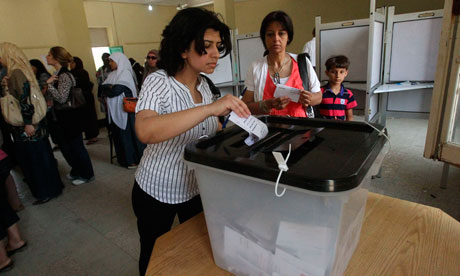Pakistan’s near political chaos, the result of President Pervez Musharraf’s declaration of martial law last year and the assassination of former Prime Minister Benazir Bhutto, has had a tsunami-like impact across Southeast Asia. Should Musharraf’s government backslide even more on its commitments to restore parliamentary democracy, Pakistan’s crisis would not only be exacerbated, but it might begin to infect the wider region.
At direct stake today is Pakistan’s future, but its future may determine the political fates of neighboring countries that are also struggling with violent Islamic fundamentalism. Will Pakistan be dragged along the path of Islamic extremism and emergency rule, or finally achieve modernity as a secular nation under civilian leadership?
That choice matters as an example across Asia, because Pakistan has long been the traditional sanctuary of Al Qaeda and its Taliban cohorts, who hide in the inhospitable Pakistani-Afghani border region. These Islamic terrorists, with their global reach, could well tilt the balance from one extreme to the other in a number of countries.
The fallout from Bhutto’s assassination was bound to reach beyond Pakistan’s borders. The country’s mushrooming instability has triggered a bitter debate in the United States about the long-term viability of Musharraf’s military-backed government and whether US financial support for Pakistan should continue.
Now, however, is not the time to freeze out Pakistan, despite the seeming chaos. Last September, Osama bin Laden’s deputy, Al-Zawahiri, released videotapes calling for jihad in Pakistan and around the world. Bin Laden’s most recent threats have been equally universal. Indeed, given extremist violence in Sri Lanka (Tamil Tigers), West Bengal (Naxalites), Bangladesh (Islamic fundamentalists), Southern Thailand (Islamic separatists), Java (Jemaah Islamiyah), and Basilan (Abu Sayyaf), the possibility that Al Qaeda and its satellites are plotting attacks elsewhere, especially against soft targets, poses a real danger to the region.
Regional leaders understand this. A year ago at their Cebu (Philippines) summit, the leaders of Asean adopted the “Asean Convention Against Terrorism. The Convention aims to prevent the commission of terrorist acts by implementing early warning systems; the use of Asean members’ respective territories by those who finance, plan, facilitate, or commit terrorist acts; and movement of terrorists and terrorist groups by means of effective border control and identity/travel documentation.
But cooperation against terror is easier said than done, given the region’s diversity of governance, culture, language, and religion, as well as Asean’s central policy of keeping out of non-interference in its members’ internal affairs. This policy has enabled the group to remain united over the years, despite severe disagreements. Where anti-terrorist planning is concerned, however, non-interference has become Asean’s biggest handicap.
Yet to be forewarned of a weakness is to be forearmed. The first and crucial preventive step that any government can take in the face of a renewed Al Qaeda offensive in southeast Asia is fully to respect the creativity, mobility, technical expertise, and financial capabilities of suicidal groups. Recall a letter from the convicted terrorist Ramzi Yousef, which was found in his Islamabad safe house after he was arrested in February 1995.
Yousef seethed with resentment about the discovery of his “Bojinka (explosives) cell in Manila the month before and vowed. “We will take the harshest of measures in order that all Filipino interests inside and outside the Philippines will be subject to destruction. … Our measures will include assassinating prominent figures, foremost among them the Filipino President (Ramos)….We also have the ability to use chemicals and poisonous gas against vital institutions, residential populations, and drinking water sources.
At the height of the Soviet-Afghanistan war in the 1980s, Pakistan was the covert conduit for Filipino Muslim militants passing to and from Afghanistan and back to the island of Mindanao, which has long been a stronghold of Muslim rebels. Their experience in guerrilla warfare produced leaders such as the brothers Abdurajak and Khadaffy Janjalani who founded the terrorist Abu Sayyaf Group, which is now wrecking havoc in the Philippines.
Indeed, just last November, a member of the Philippines’ Congress, Wahab Akbar, a Muslim representing Basilan, was killed with five others in front of the House of Representatives by an improvised explosive device of the type used in Pakistan, Afghanistan, and Iraq. His death should serve as a warning to all Southeast Asian governments: we must fight Al Qaeda together, or we shall lose to them separately.
Fidel V. Ramosis a former President of the Philippines. This article is published by Daily News Egypt in collaboration with Project Syndicate, www.project-syndicate.org.

